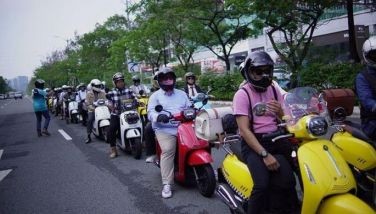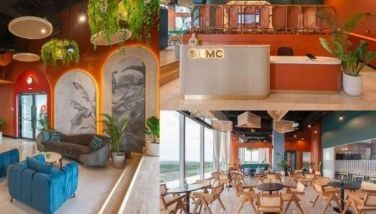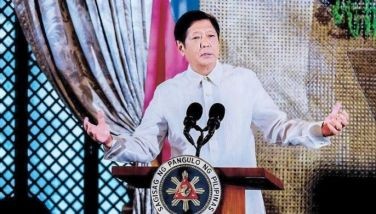One Swede Day: Ambassador Annika Thunborg on the green and digital transition and partnership in defense and security
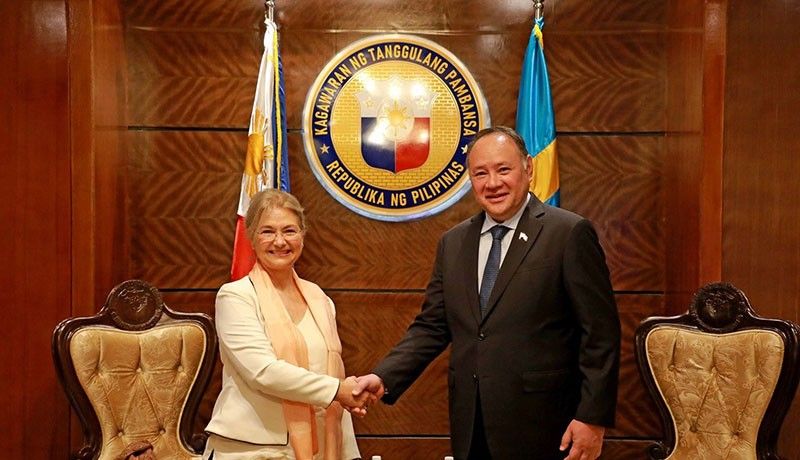
MANILA, Philippines — The residence of Sweden’s Ambassador to the Philippines Annika Thunborg is as understatedly elegant as the ambassador herself. We met her at the tail end of extremely hot weeks, so we had to ask her—who comes from an extremely cold country—how she has found the Philippines since her arrival in 2021.
“I think it is wonderful to live in the Philippines. It’s an absolutely beautiful country with the flora and fauna,” she says. “It is the deep tropics, of course; and there are issues that come with that, so it’s not easy for anyone.”
Ambassador Annika Thunborg is all about building a society that works for everyone, and this is where our conversation revolved. Starting, of course, with sustainability.
A global leader in innovation and sustainability
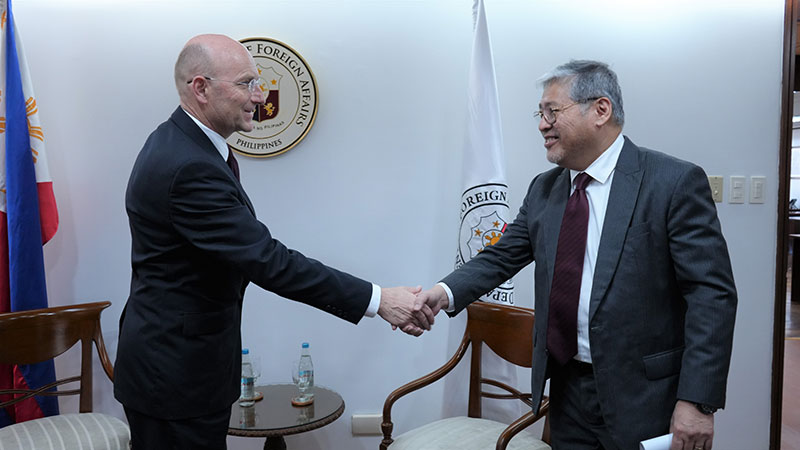
Sweden consistently tops sustainability indices and is said to have one of the most environmentally conscious populations with citizens who are among the highest recyclers.
For Ambassador Thunborg, sustainability is three-pronged.
“Sustainability is environmental, social and economic, and it is included in every operation, whether public or private,” she says.
“We don’t believe that that is an important issue just because we are good, but it is really important for efficiency and productivity. Anyone who includes those different criteria for sustainability would be much more efficient and productive.”
Ambassador Thunborg agrees that environmental sustainability is at the forefront with the current issues and threats as regards climate change. For her, it is also about preserving nature and deploying green solutions, such as renewable sources of energy and energy efficiency.
Social sustainability, meanwhile, includes respect for human rights. “In business operations, this means good labor conditions, decent salaries and how people are treated and included in any operation,” Ambassador Thunborg says.
She continues, “Economic sustainability pertains to the importance of transparency in governance, the lack of corruption, and the rule of law in any economic operation.”
For the ambassador, we cannot talk about sustainability without mentioning innovation. “Digitalization will be part of any operation in terms of the green and digital transition,” says Ambassador Thunborg. “So this is one priority we have today.”
Sweden works in the quadruple helix format which is the close collaboration between the public and the private sector, academia and civil society. This ensures inclusivity and puts in place the best conditions for development.
Key priority areas with the Marcos administration
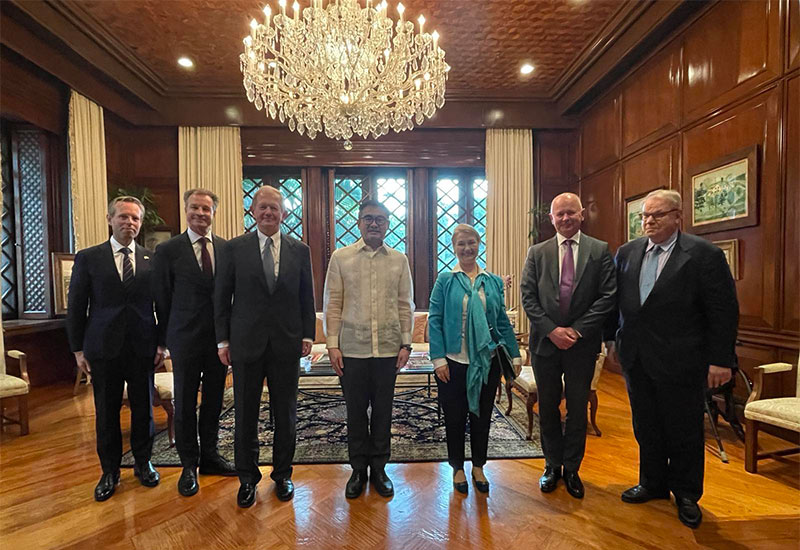
Ambassador Thunborg and her team have been working closely with the government since President Bongbong Marcos took office. “We are like-minded when it comes to prioritizing socio-economic development,” she says. “This covers infrastructure, energy, digitalization, connectivity and the rule of law.”
For Ambassador Thunborg, the many challenging situations happening around the world remind us that it is more than ever important to uphold standards of International Law and the Rules-Based International Order (including UNCLOS or 1982 United Nations Convention on the Law of the Sea).
“The Philippines and Sweden have always been good partners in the United Nations and the multilateral system,” she says. “We have been grateful from the beginning for the Philippines’ strong condemnation of the Russian invasion of Ukraine, and standing up for principles of international law.”
Defense and security
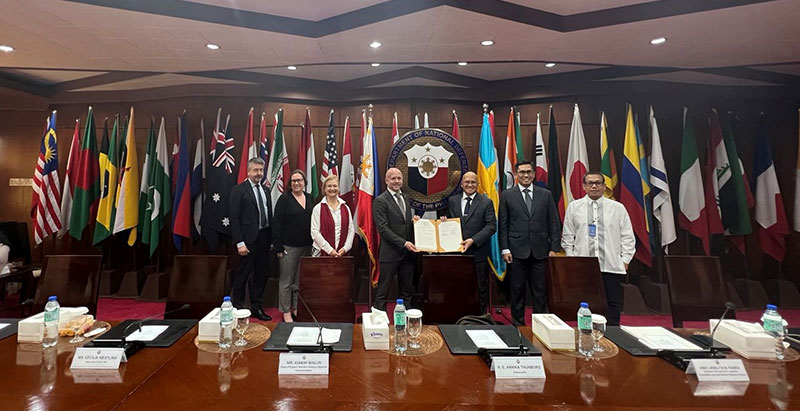
On March 7, Sweden officially became a member of NATO.
Increased geopolitical tensions have led Sweden to once again enhance its capacity and collaborations in areas of defense and security. As a NATO member, Sweden will be able to enhance the security in the Nordic-Baltic region, Europe, and globally. The security and economy of the Euro-Atlantic and the Indo-Pacific are becoming increasingly interrelated.
“In an increasingly polarized world, it is crucial for states to have strong ties with like-minded countries,” says Ambassador Thunborg. “The Philippines is an important partner in areas like free trade and defense and security.”
The Philippines is one of the stops of Swedish Defence Minister Pål Jonson in his travels in the Asia Pacific.
Transportation and energy
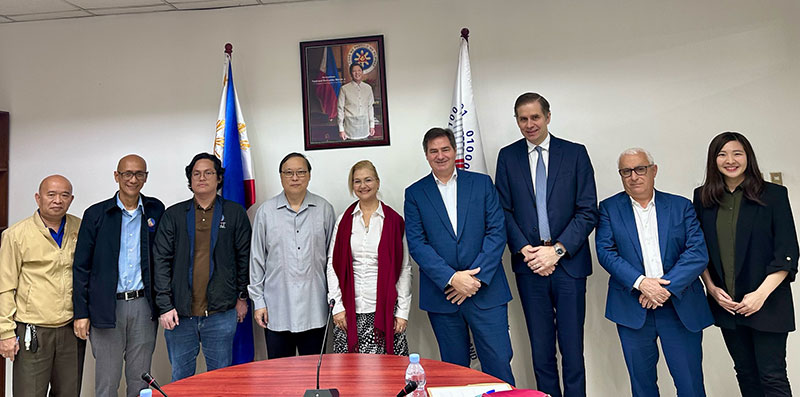
Sweden has worked on several transportation projects in the Philippines since 2015.
“We have worked together on developing the EDSA busway so it really will become a true dedicated bus lane,” says Ambassador Thunborg. “This is part of building a public transportation system for everyone, very important for any city and especially for such a large city like Metro Manila.”
The Embassy of Sweden in the Philippines is planning similar work in Iloilo, providing a technical feasibility study for the building of dedicated bus lanes and helping address issues, like bus standards. They are also working on a project with the Department of Energy (DOE) to connect small islands and address energy transmission.
Sustainable mining
Sweden is traditionally a mining country, having the largest deposits of iron ore in Europe. “Mining has been very important to us, so we have strong companies that provide safe and sustainable solutions and equipment for mining operations,” Ambassador Thunborg says.
Sweden would like to support the Philippines in developing its mining sector. Ambassador Thunborg shares that the Department of Environment and Natural Resources (DENR) is interested to collaborate with Swedish stakeholders on mining.
“Now we have a mining forum together with the DENR and the Chamber of Mines.”
The forum will take place on June 18 and will focus on Sweden sharing their sustainable and responsible mining solutions and practices.
Capacity-building and education
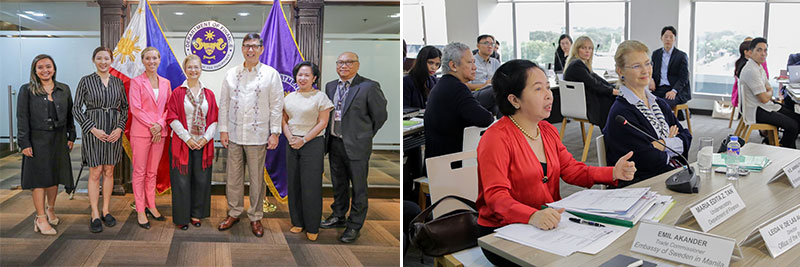
Sweden is big on foreign assistance. With their work in the transportation and energy sectors, they also provide grants for technical feasibility studies. “That is really capacity-building,” says Ambassador Thunborg. “We hope to see more of this link between aid and trade.”
Sweden is one of the five largest per capita donors in the world, felt in the Philippines mainly through humanitarian assistance. Organizations like the Swedish Civil Contingencies Agency and the Swedish Institute (SI) run capacity-building programs in the country.
“Around 70 Filipinos in management positions have been educated through these programs,” continues the ambassador. The newly launched SI Global Executive Leadership Program targets high-level leaders in the private sector to roll out sustainable business practices.
The World Maritime University—under the International Maritime Organization—is based in Sweden. The institution boasts 230 Filipino graduates, usually in management positions. They return to the Philippines and apply their learnings here to benefit the country.
Other areas of cooperation between the Philippines and Sweden include gender equality (part of the overall Swedish development strategy) and health.
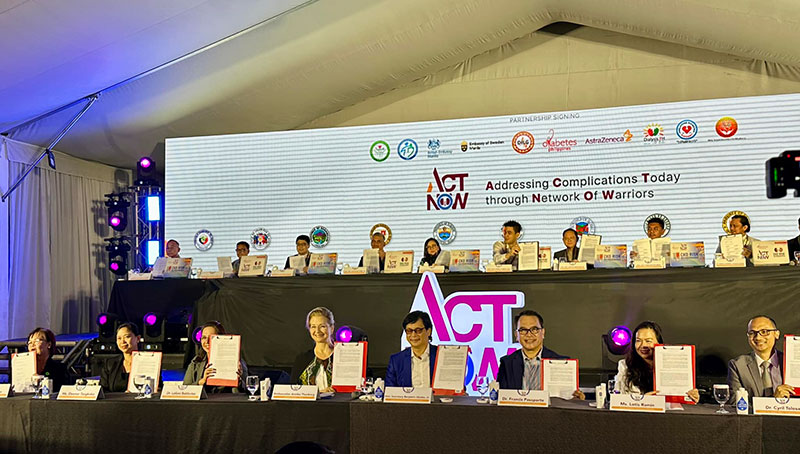
Is there hope for us to be like Sweden?
“Yes, absolutely,” Ambassador Thunborg quickly answers. “Sweden is far away. We can look at the neighboring countries, such as Japan and South Korea, that have done extremely well.”
Sweden was considered a poor country 100 years ago. Ambassador Thunborg credits the development of the country to innovation, social security and free and open trade. “The resumption of Free Trade negotiations between the EU and the Philippines, announced in March this year, is welcome news for us,” says Ambassador Thunborg.
“The key is a strong private sector that works in tandem with academia, decent work for everyone, good health care and good education,” says Ambassador Thunborg. “What is needed is always political will. It’s the willingness for the country to do well and the will to change.”
By this, she also means the willingness to compromise—for the wealthy to be willing to invest in the country instead of private consumption. For Ambassador Thunborg, the eradication of poverty should be the most important priority.
“People need decent jobs to be able to support themselves and to build their own lives,” she adds.
The key to success? For us to take responsibility for our own development.
- Latest







